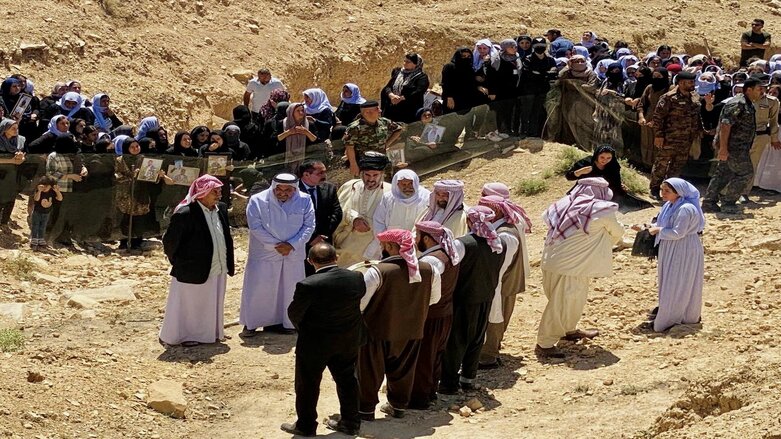Seven years passes on Sinjar’s liberation from ISIS

ERBIL (Kurdistan 24) – Following over a year of suffering the so-called Islamic State’s brutality and destruction, the Yezidi-majority town of Sinjar was liberated seven years ago by the Kurdistan Region’s Peshmerga forces under the leadership of President Masoud Barzani.
The extremist group took over the Iraqi northwestern town and its nearby villages in early August 2014 as part of its offensive, which captured a third of Iraq. Roughly 10,000 Yezidis, including women and children, were either killed or kidnapped by the terror group.
Commanded by President Masoud Barzani, the former president of Kurdistan Region, approximately 7,500 members of Peshmerga forces took part in the liberation operation, whose air support was provided by the international coalition.
“Militarily, historically, and politically, it is a great victory for all Kurdistan” Barzani said in a speech after the liberation of the northwestern town.
The Kurdistan Region’s authorities soon after launched repatriation efforts for the kidnapped Yezidis, a significant number of whom were sexually enslaved.
The United Nations has recognized the tragedy as a genocide committed against the ethnoreligious group that had faced similar humanitarian catastrophes in the country.
Earlier this month, the Luxembourg parliament recognized the Yazidi genocide after its recognition by Germany, Belgium, Canada, the US, and the French Senate.
Read More: Luxembourg parliament formally recognizes Yezidi genocide
The lack of reconstruction efforts in the war-ravaged town has prevented thousands of displaced Yezidis to continue living in the internally displaced camps (IDP) camps of Iraq’s Kurdish region.
Also, on November 13, 2015, ISIS cooardinated several attacks by seven of its members in Paris, where 130 people killed and at least 416 injured. All the attackers were killed in the assault.
